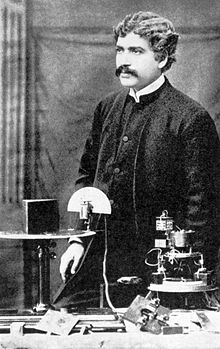
Back বাংলাদেশে বিজ্ঞান ও প্রযুক্তি Bengali/Bangla მეცნიერება და ტექნოლოგია ბანგლადეშში Georgian Наука в Бангладеш Russian
In Bangladesh, the cultivation of modern science started during the British Raj when the first modern educational institutions, focused on scientific fields, were established in the Bengal Presidency. The University of Dhaka, established in 1921, acted as the driving force in producing many renowned scientists in Bangladesh.
Since its independence in 1971, Bangladesh has been plagued with many social issues such as poverty and illiteracy, and science and technology have lagged behind in the priority list of the successive governments. However, induced by the recent economic progress, science and technology has been witnessing intense growth in the country after a period of stagnation, most notably in the information technology and biotechnology sectors. The national policies for science and technology is planned and developed by the National Council for Science and Technology which is controlled by the ministry of science and technology.[1] Bangladesh was ranked 106th in the Global Innovation Index in 2024.[2]


- ^ Cite error: The named reference
banglapediawas invoked but never defined (see the help page). - ^ World Intellectual Property Organization (2024). Global Innovation Index 2024. Unlocking the Promise of Social Entrepreneurship. Geneva. p. 18. doi:10.34667/tind.50062. ISBN 978-92-805-3681-2. Retrieved 22 October 2024.
{{cite book}}:|website=ignored (help)CS1 maint: location missing publisher (link)